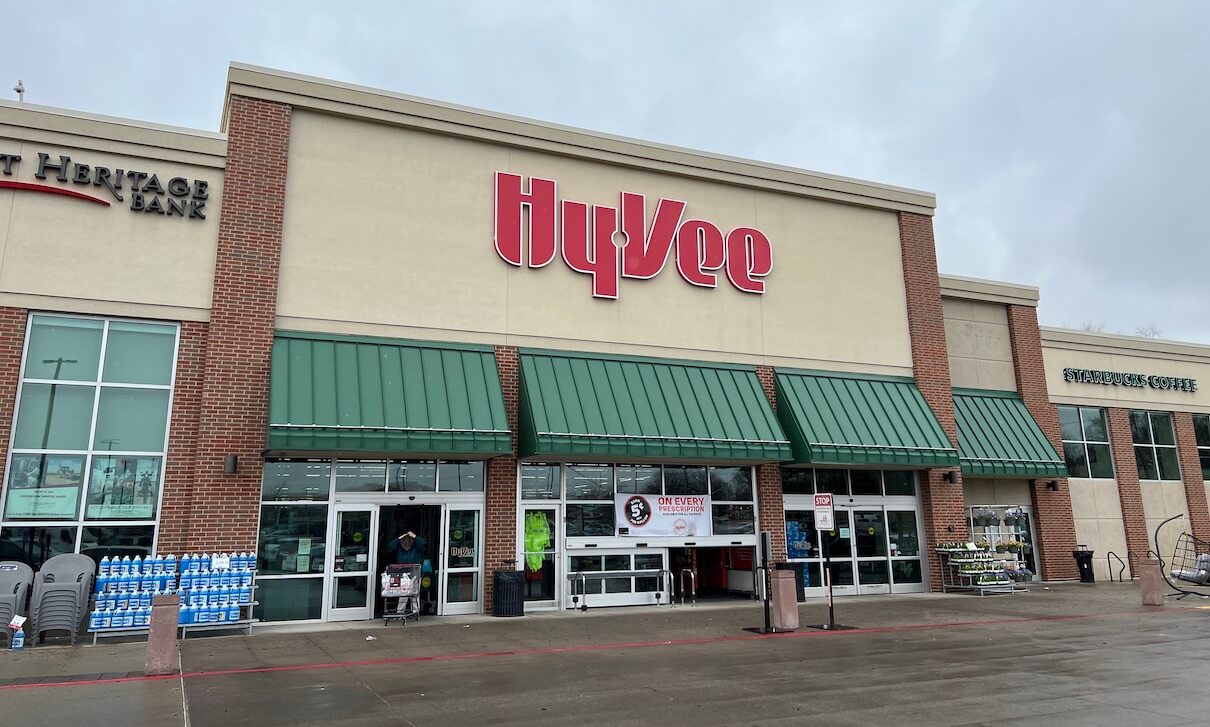
When Hy-Vee unexpectedly dismissed 121 corporate employees in March, some questioned if the West Des Moines company violated the state and federal WARN Act provisions.
The grocer got around this accusation by saying it offered 102 of the mostly headquarters and IT employees retail store positions—some of the laid-off workers who spoke to Starting Line refute this claim—and that it only laid off 19 employees. That’s an important number and we’ll explain why shortly.
So what is the WARN Act and why should you care about it?
The Worker Adjustment and Retraining Notification (WARN) Act was passed by Congress in 1988. The bill required companies to give workers at least 60-days notice that they were losing their jobs during a mass layoff or plant closure. It was considered controversial at the time, according to The Los Angeles Times.
[inline-ad id=”0″]
Iowa passed its WARN law in 2011 and it expanded the scope of the federal law. You can view the notification system online at Workforce Development’s website. There’s already been six major layoffs in Iowa this year that fell under the WARN Act, including at the Dubuque greyhound racetrack and the Siemens wind turbine plant in Fort Madison.
OK, so what do these laws do?
Basically, these WARN laws force companies to notify workers (or their union), the state and/or federal department of labor, and the appropriate body of the local government of impending job cuts in the case of mass layoffs or plant closures.
The notice has to contain a reason for the layoffs and/or closing of a business, the date of the closing and the date a person is let go, the contact information for a person who can provide additional information, and an explanation of “bumping rights,” which we won’t get into since it’s not widely applicable.
[inline-ad id=”1″]
And this was controversial?
The ’80s, am I right?
…
Sorry, I’ll go back to answering questions.
I got the gist of what the WARN Act does, but who does the law apply to?
The federal WARN Act applies to companies with 100 or more full-time employees while the Iowa version applies to companies with 25 or more full-time employees. To make this simpler, unless it’s specified otherwise, assume I’m talking about full-time workers going forward.
The federal law requires employers to notify workers if 50 or more workers are let go because of a closure, if your employer lays off a third of the workforce at a single location, or if 500 or more workers are let go at a single site.
Iowa’s law applies for a permanent or temporary shutdown or mass layoff that impacts 25 or more employees. That 25-person provision is why it’s notable that Hy-Vee argues it only laid off “19 people” although it handed out 121 pink slips.
[inline-ad id=”2″]
Who knew a grocery store could be sneaky?
Right? This could almost be the plot of a show on the Hy-Vee streaming network.
Anyway, while the WARN Act covers a lot of bases, it has ways to circumvent it such as offering a job transfer. If a person is offered a transfer to another location but doesn’t accept, then that doesn’t count against the company’s layoff total.
So, hypothetically, let’s say you worked in IT at a Hy-Vee corporate office say in Grimes for instance. If Hy-Vee approached you and offered you a job as a produce manager for a future store in Tennessee and you declined and were subsequently fired, then the store technically hasn’t violated any laws. However, it would seem rather disingenuous to offer a person who solves technical issues from behind a computer screen a completely different type of job away from where they live.
[inline-ad id=”3″]
Hmm, that does seem odd. Who else isn’t covered?
Part-time workers, striking workers or those involved in labor disputes, business partners/consultants/temporary workers, and government employees no matter what level they are at.
Any exceptions for companies?
Oh, buddy, there are a few! If a business is considered a “faltering company” it is excused from complying with the WARN Act as are businesses impacted by natural disasters and “unforeseeable business circumstances.”
A natural disaster is self-explanatory, but what do the other two mean?
A faltering company is considered a company that was struggling financially but was actively seeking capital to maintain business operations.
While that’s simple enough, “unforeseeable business circumstances” is a little less clear. That phrasing has been the subject of numerous court cases and legal scholar debates.
Here’s what the federal law states:
“An important indicator of a business circumstance that is not reasonably foreseeable is that the circumstance is caused by some sudden, dramatic, and unexpected action or condition outside the employer’s control. A principal client’s sudden and unexpected termination of a major contract with the employer, a strike at a major supplier of the employer, and an unanticipated and dramatic major economic downturn might each be considered a business circumstance that is not reasonably foreseeable. A government-ordered closing of an employment site that occurs without prior notice also may be an unforeseeable business circumstance.”
[inline-ad id=”4″]
What does that mean?
If the government shuts down your business, you lose a major contract, a major supplier of your business has a worker strike, or the economy tanks, a business could reasonably argue that those were unforeseeable business circumstances. However, bankruptcy is a gray area.
What happens if a company violates the WARN Act?
Under federal law, a company that violates the notice requirement owes each affected worker back pay and benefits for the period of violation up to 60 days. For failing to notify the local government, the company is subject to a civil penalty of $500 for each day of the violation.
Under Iowa law, the business can be assessed a penalty of $100 for each day of the violation.
[inline-ad id=”5″]
Who enforces these laws?
The federal law is enforced through the US District Court system while the state law is enforced through Iowa Workforce Development.
Got it. Well, thanks for explaining all that!
You’re more than welcome. It only took me about 35 tabs to digest all of this information.
by Ty Rushing
04/07/22
Iowa Starting Line is part of an independent news network and focuses on how state and national decisions impact Iowans’ daily lives. We rely on your financial support to keep our stories free for all to read. You can contribute to us here. Also follow us on Facebook and Twitter.
[inline-ad id=”0″]
Politics

Biden cancels student loan debt for 2,690 more Iowans
The Biden administration on Friday announced its cancellation of an additional $7.4 billion in student debt for 277,000 borrowers, including 2,690...

The Republican war on Medicare raises the stakes in 2024
Nearly 670,000 Iowans rely on Medicare benefits—benefits they spent decades paying into, with the promise that the program would be there for them...
Local News

No more Kum & Go? New owner Maverik of Utah retiring famous brand
Will Kum & Go have come and gone by next year? One new report claims that's the plan by the store's new owners. The Iowa-based convenience store...

Here’s a recap of the biggest headlines Iowa celebs made In 2023
For these famous Iowans, 2023 was a year of controversy, career highlights, and full-circle moments. Here’s how 2023 went for the following Iowans:...






